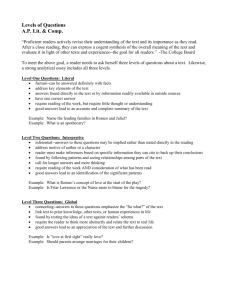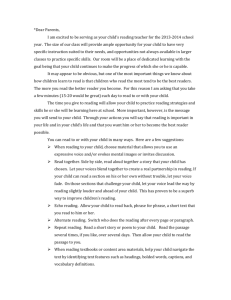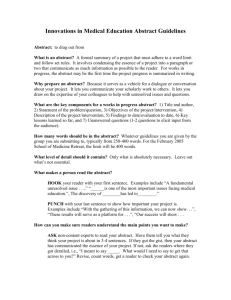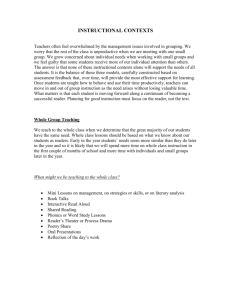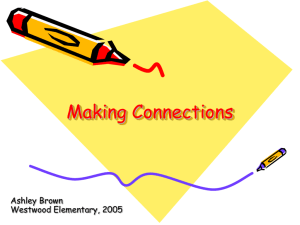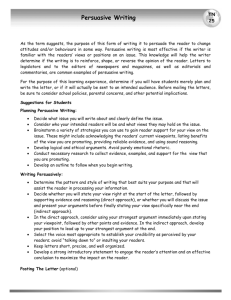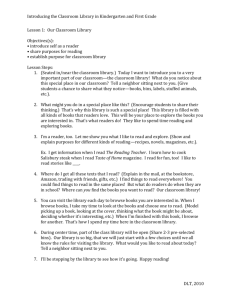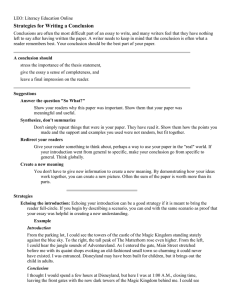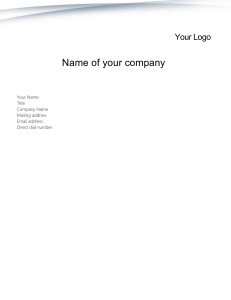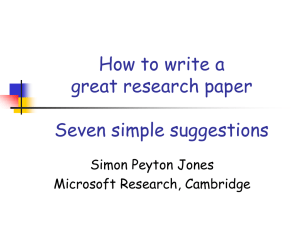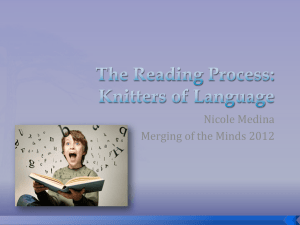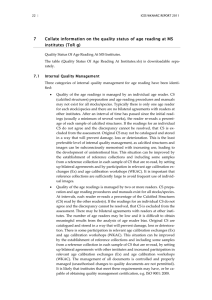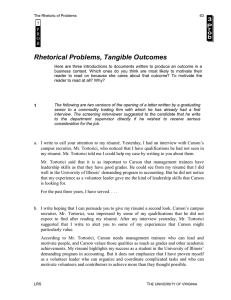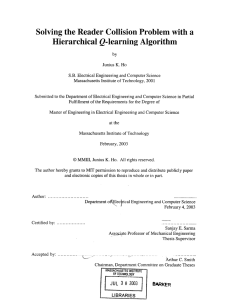audience quiz
advertisement
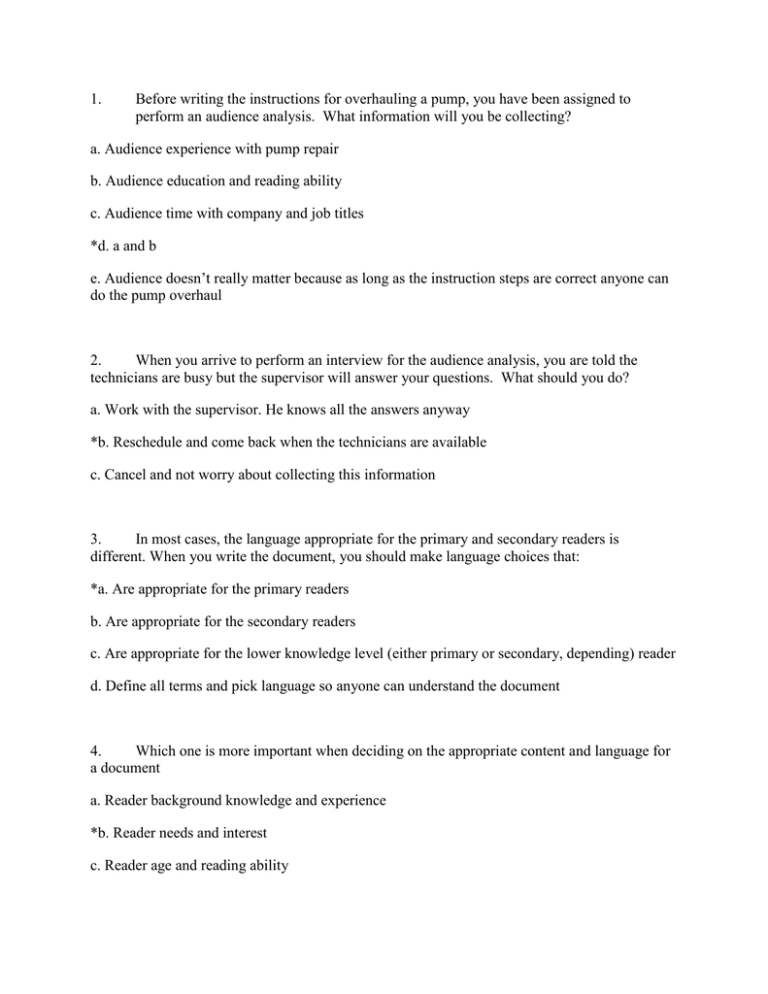
1. Before writing the instructions for overhauling a pump, you have been assigned to perform an audience analysis. What information will you be collecting? a. Audience experience with pump repair b. Audience education and reading ability c. Audience time with company and job titles *d. a and b e. Audience doesn’t really matter because as long as the instruction steps are correct anyone can do the pump overhaul 2. When you arrive to perform an interview for the audience analysis, you are told the technicians are busy but the supervisor will answer your questions. What should you do? a. Work with the supervisor. He knows all the answers anyway *b. Reschedule and come back when the technicians are available c. Cancel and not worry about collecting this information 3. In most cases, the language appropriate for the primary and secondary readers is different. When you write the document, you should make language choices that: *a. Are appropriate for the primary readers b. Are appropriate for the secondary readers c. Are appropriate for the lower knowledge level (either primary or secondary, depending) reader d. Define all terms and pick language so anyone can understand the document 4. Which one is more important when deciding on the appropriate content and language for a document a. Reader background knowledge and experience *b. Reader needs and interest c. Reader age and reading ability 5. Which option does fits within this sentence: Technical communications is the delivery of technical information to readers (or listeners or viewers) in a manner that is adapted to their ____, ____, and ____. a. background b. needs c. level of understanding *d. All three e. None of the above 6. A grammatically correct document is always good technical writing. a. True *b. False Type: F 7. In Aristotle's treatise Rhetoric, rhetoric was the art of _____ a. communication b. communicating 8. Rhetoric is case-specific. It refers to specific situations, specific moments, and specific audiences. *a. True b. False Type: F Type: FMB 9. Establishing [purpose, audience] and [purpose, audience] are the first tasks of the professional writer. Type: MA 10. Characteristics of a semiexpert level audience are: (mark all that apply) *a. Wide variation in knowledge across the subject *b. Lacks background understanding or theory about the subject c. Have not dealt with the information before d. Does not need detailed explanations 11. Documents for experts should contain a complete description or explanation since they can understand it. a. True *b. False 12. The secondary readers of a document need more detailed technical information than the primary readers. You can addressing this information need by: a. Putting it in the report body, since the primary reader only reads the executive summary. *b. Putting it in an appendix. c. Not including it. The document should focus on supporting the primary reader. d. Putting it in the report body, but labeling it headings, shadings or other formatting to clearly set it off from the rest of the text. 13. You can assume technical documents will be read front to back in their entirety. a. True *b. False 14. A document that contains complete and correct information is always good technical writing. a. True *b. False 15. Which is the poorest way to check a document’s effectiveness. Asking people to: a. Read the document and answer questions about its content *b. Look over the document and say if it looks usable c. Use the document to perform a task explained in it d. Discuss their reactions to the document 16. A series of yes/no questions is the best way to interview people because it gives you clear answers to your questions. a. True *b. False 17. After writing a document explaining a corporate monthly report (contents, how fields are calculated, etc.), which of these questions is the best one to ask when you show it to potential users of the document. a. Do you think this document will be helpful? *b. Which questions that arise when you read the monthly report would make you look at this document? c. List all of the times you might look at this document? d. Do you expect to reference this document each month?
